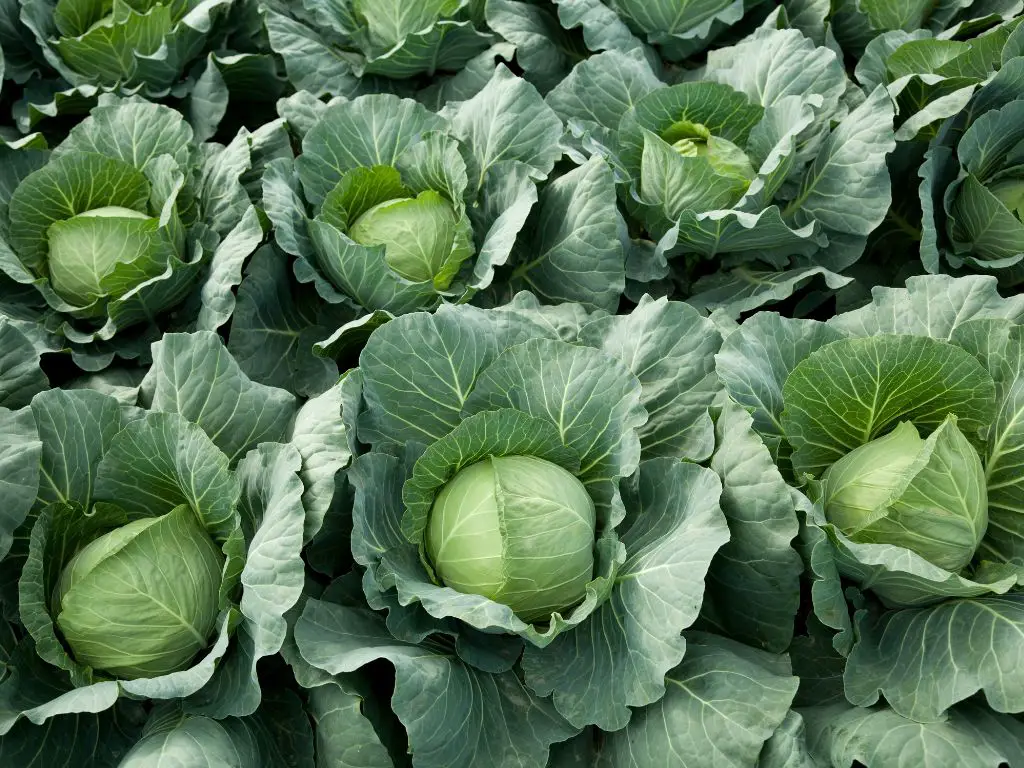Cabbage is one vegetable that benefits tremendously from sous vide preparation. There are several key reasons why cooking cabbage with an immersion circulator can lead to better results:

Sous Vide Products I Use Every Day
As an Amazon affiliate, I earn from qualifying purchases.
Last update on 2025-03-03 / Affiliate links / Images from Amazon Product Advertising API
Consistent Cooking Results
One of the main challenges of cooking cabbage through traditional methods like boiling, steaming, or sautéing is that it’s easy to over or undercook. Sous vide allows you to set a specific temperature and cook time to get cabbage cooked just right every time. Whether you prefer your cabbage lightly crisp or very soft, you can achieve your ideal texture consistently with sous vide.
Enhanced Flavor and Texture
Cooking cabbage in a sealed bag submerged in a precise temperature water bath retains more of its natural flavors. The slow cooking tenderizes the cabbage without making it mushy or waterlogged. Sous vide also concentrates cabbage’s sweetness and prevents strong sulfur smells from developing. The resulting texture is firm yet tender.
Nutrient Retention
Vegetables like cabbage have high amounts of vitamins and minerals that can leach out into cooking water. Sous vide cooking retains more nutrients in the food compared to boiling or steaming. Cabbage cooked sous vide may have higher levels of beneficial compounds like vitamin C and antioxidants.
How to Sous Vide Cabbage
Making sous vide cabbage is simple but requires a few key steps for the best outcome:
Preparing the Cabbage
Choose cabbage heads that feel heavy for their size and have tightly packed leaves. Remove any wilted outer leaves. Core the cabbage and cut it into wedges or chunks about 1 to 2 inches thick. Larger pieces may require longer cooking times. Shredded cabbage can also be sous vide but may become mushy.
Choosing the Right Temperature and Time
The following combinations of temperature and cooking time will produce properly cooked sous vide cabbage with different textures:
- For crisp-tender cabbage, cook at 183°F for 30-45 minutes.
- For very tender cabbage, cook at 194°F for 1 to 2 hours.
- Up to 12 hours at 183°F makes cabbage silky soft.
Sealing and Cooking the Cabbage
Place the cabbage pieces in sealable plastic bags, removing as much air as possible. Seal using a vacuum sealer if available for best results. Cook the sealed cabbage in your preheated water bath sous vide device at the desired temperature and time.
Finishing and Serving Sous Vide Cabbage
Once cooked, shock the cabbage in an ice bath if you want to stop the cooking process. Otherwise, pat dry and sear in a hot skillet with oil or butter to caramelize the surfaces. Season and serve the sous vide cabbage warm as a side or incorporate it into main dishes.
Sous Vide Cabbage Variations and Flavor Combinations
Beyond basic seasoned cabbage, there are many possibilities for infusing flavors into sous vide cooked cabbage.
Sous Vide Cabbage with Butter and Garlic
Sauté minced garlic in butter and cook the cabbage sealed with the garlic butter. The flavors absorb into the cabbage during sous vide cooking.
Sous Vide Cabbage with Bacon and Onion
Cook lardons of bacon sous vide with cabbage, onions, and chicken or vegetable stock. The smoky, salty bacon complements the sweet cabbage.
Sous Vide Cabbage with Caraway Seeds and Apple Cider Vinegar
Season raw cabbage with caraway seeds and apple cider vinegar before sealing. The flavors infuse into the cabbage.
Sous Vide Asian-Style Cabbage
Marinate cabbage chunks in a blend of soy sauce, sesame oil, ginger, and red pepper flakes before cooking for an Asian-inspired flavor profile.
Tips for Successful Sous Vide Cabbage Cooking
Follow these tips to get the best results when cooking cabbage with an immersion circulator:
- Use fresh, firm heads of cabbage and trim any dried out leaves. Old cabbage can become mushy.
- Cut cabbage into evenly sized pieces to ensure even cooking.
- Pack cabbage loosely in bags, not too tightly compressed.
- If cooking cabbage alone, add a small amount of oil or butter to the bag to prevent sticking.
- For the most tender texture, cook at 183-194°F for at least 1 hour.
- Shock quickly in ice bath if not serving immediately to stop residual cooking.
- Pat dry and sear cabbage wedges quickly in butter or oil before serving to enhance flavor.
Can You Sous Vide Other Types of Cabbage?
While green cabbage is the most commonly cooked sous vide, other cabbage varieties also benefit from precision cooking.
Sous Vide Red Cabbage
The bright tones of red cabbage dull when cooked traditionally. Sous vide keeps the vibrant purple hues intact. Cook at 183-194°F for 1-3 hours.
Sous Vide Napa Cabbage
Napa cabbage becomes velvety soft with sous vide cooking. Cook whole leaves layered with aromatics for stuffed wraps.
Sous Vide Savoy Cabbage
The ruffled leaves of savoy cabbage have a more delicate texture. Shorter sous vide cook times of 30-60 minutes prevent mushiness.
Conclusion: Sous Vide Cabbage for Perfectly Cooked, Flavorful Dishes
Cooking cabbage using the sous vide technique results in cabbage that is cooked evenly with great texture. The precise temperature control enables cabbage to be tender without becoming waterlogged or overcooked. Sous vide also retains nutrients while allowing flavors to fully develop in the sealed environment. Whether seasoned simply or paired with aromatics like garlic and spices, sous vide cabbage makes for flavorful sides and versatile additions to main and stuffed dishes.


![IMPRESA [10 Pack] Sous Vide Magnet Weights for Keeping Bags Submerged – Sous Vide Accessories to Stop Floating Bags & Undercooking – Weighted Magnets for Containers](https://m.media-amazon.com/images/I/41zHpl8G2lL._SL160_.jpg)

